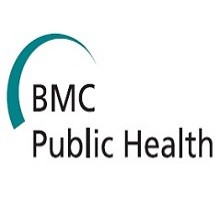
نقش بالقوه پروبیوتیک ها روی پیش گیری از سرطان کلورکتال
چکیده
پیش زمینه سرطان کلورکتال نماینده¬ی یکی از معمولترین بیماریهای زیانبار در بخش معدی رودهای میباشد. به علت تفاوتهای موجود در عادت غذایی و سبک زندگی، این نئوپلاسم در کشورهای صنعتی معمولتر از کشورهای درحالتوسعه میباشد. شواهد بهدستآمده از یک طیف وسیعی از منابع، از این فرض حمایت میکنند که ارتباط بین رژیم غذایی و سرطان کلورکتال ممکن است ناشی از یک عدم تعادل در میکروفلور روده باشد.
بحث باکتریهای پروبیوتیک، میکروارگانیسمهای زندهای میباشند که زمانی که به مقدار کافی تجویز شوند، یک مزیت سلامتی را به میزبان اعطا میکنند، و آنها از چشمانداز اثرات ضد توموریشان موردمطالعه قرارگرفتهاند. مطالعات مولکولی و in vivo، یافتههای تشویقی را نشان دادهاند که از نقش پروبیوتیک¬ها در پیشگیری از سرطان کلورکتال حمایت میکنند.
خلاصه چندین مکانیسم میتواند فعالیت پیشگیرانهی پروبیوتیک¬ها را در مقابل هجوم سرطان کلورکتال توضیح دهد. آنها شامل تغییر میکروفلور روده، عدم فعالسازی ترکیبات سرطانزا، رقابت با میکروبیوتای بیماریزا و فاسد کننده؛ بهبود پاسخ ایمنی میزبان؛ اثرات ضد تکثیری توسط تنظیم آپوپتوز و تمایز سلولی؛ تخمیر غذای هضم نشده؛ مهار مسیرهای سیگنالینگ تیروزین کیناز میباشد.
پیشزمینه
سرطان کلورکتال (CRC) یکی از مهمترین مسائل سلامتی در دنیا میباشد، که نماینده¬ی یکی از معمولترین بیماریهای زیانبار در بخش رودهای معدی (GI) میباشد. CRC در کشورهای صنعتی نسبت به کشورهای درحالتوسعه فراوانتر میباشد و نرخ شیوع آن در این کشورها 4 برابر بیشتر است. تفاوتهای موجود در عادت غذایی و سبک زندگی بیشتر از عوامل نژادی ممکن است نشاندهندهی این شکاف باشد همانطوری که توسط مطالعات انجامشده روی جانوران مهاجر اثبات شده بود. رژیم غذایی احتمالاً یک نقش کلیدی را در بیماریزایی CRC بازی میکند. مطالعات اپیدیمی شناسی نشان میدهند که مصرف گوشت قرمز و غذای حیوانی با افزایش ریسک توسعه¬ی CRC مرتبط میباشد، درحالیکه به نظر میرسد که یک رژیم غذایی غنی از میوه و سبزیجات، بدن را از CRC محافظت کند. شواهد بهدستآمده از یک طیف وسیعی از منابع از این فرض حمایت میکنند که ارتباط بین رژیم غذایی و CRC ممکن است به دلیل ایجاد یک عدم تعادل در میکروفلور روده باشد. در پرندگان، بخش GI توسط میکروبها اشغالشده است و تبدیل به اقامتگاهی برای چندین جمعیت از میکروارگانیسمها در کل زندگی میزبان شده است.
Abstract
Background Colorectal cancer represents the most common malignancy of the gastrointestinal tract. Owing to differences in dietary habits and lifestyle, this neoplasm is more common in industrialized countries than in developing ones. Evidence from a wide range of sources supports the assumption that the link between diet and colorectal cancer may be due to an imbalance of the intestinal microflora.
Discussion Probiotic bacteria are live microorganisms that, when administered in adequate amounts, confer a healthy benefit on the host, and they have been investigated for their protective anti-tumor effects. In vivo and molecular studies have displayed encouraging findings that support a role of probiotics in colorectal cancer prevention.
Summary Several mechanisms could explain the preventive action of probiotics against colorectal cancer onset. They include: alteration of the intestinal microflora; inactivation of cancerogenic compounds; competition with putrefactive and pathogenic microbiota; improvement of the host’s immune response; anti-proliferative effects via regulation of apoptosis and cell differentiation; fermentation of undigested food; inhibition of tyrosine kinase signaling pathways.
Background
Colorectal cancer [CRC] is one of the major health problems in the world, representing the most common malignancy of the gastrointestinal [GI] tract. CRC is more frequent in industrialized countries than in developing ones with a four times higher incidence [1]. Differences in dietary habits and lifestyle rather than racial factors may explain this gap as it has been demonstrated by studies on migrants. The diet is likely to play a key role in the pathogenesis of CRC. Epidemiological studies have shown that the consumption of red meat and animal fat is associated with an increased risk for CRC development [2], whereas a diet rich in fruits and vegetables appears to be protective against CRC [3]. Evidence from a wide range of sources supports the assumption that the link between diet and CRC may be due to an imbalance of the intestinal microflora [4]. At birth, the GI tract is colonized by microbes and remains the home for several populations of microorganisms throughout the life of the host.
چکیده
پیشزمینه
بحث
مکانیسمهای مهار CRC توسط پروبیوتیک¬ها
تغییر متابولیسم میکروفلور روده
غیر فعال کردن ترکیبات سرطان زا
رقابت با میکروبیوتای فاسد کننده و بیماری زا
بهبود پاسخ ایمنی میزبان
اثرات ضد تکثیری توسط تنظیم آپوپتوز و تمایز سلولی
تخمیر غذاهای هضم نشده
مهار مسیرهای سیگنالینگ تیروزین کیناز
نتیجه گیری
Abstract
Background
Discussion
Mechanisms of CRC prevention exerted by probiotics
Alteration of the intestinal microflora metabolism
Inactivation of cancerogenic compounds
Competition with putrefactive and pathogenic microbiota
Improvement of the host’s immune response
Anti-proliferative effects via regulation of apoptosis and cell differentiation
Fermentation of undigested food
Inhibition of tyrosine kinase signaling pathways
Conclusions
- ترجمه فارسی مقاله با فرمت ورد (word) با قابلیت ویرایش، بدون آرم سایت ای ترجمه
- ترجمه فارسی مقاله با فرمت pdf، بدون آرم سایت ای ترجمه
